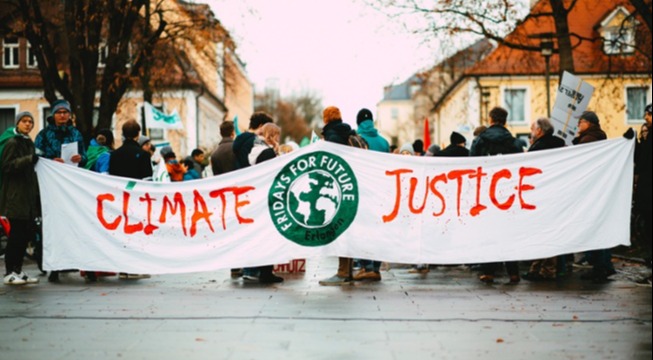Living on the Front Lines
Throughout history, the faces of the environmental movement have been predominantly White: John Muir, Rachael Carson, Bill McKibben, Al Gore, etc. However, BIPOC (Black, Indigenous, and people of color) activists and communities have been at the forefront of the climate justice and environmental movements throughout history despite the lack of visibility—and sometimes erasure—of their contributions.
People of color are often on the front lines of environmental struggles. Communities of color are disproportionately affected by environmental degradation and climate change. They are more likely to live near toxic facilities like coal plants, landfills, oil refineries, etc, that produce chemicals that shorten and impact quality of life. And they disproportionately are affected by the impacts of climate change, like floods, extreme heat, food scarcity, and disease.
Because they are often the people most impacted, people of color are at the forefront in the battle for environmental and climate justice, fighting so that all people are equally protected from the impacts of these crises.
Here are a few Black climate activists who you may not have heard of, but who are leading the climate justice movement.
Jerome Foster II
Every Friday for over a year, Jerome Foster stood in front of the White House demanding action on climate change as a part of the Fridays for Future movement.
His work as a leader in the youth climate movement has been recognized on the international stage. Jerome has spoken at the United Nations High Commission on Human Rights, met with world leaders, and has helped to pass the Clean Energy DC Act which is one of the most aggressive and comprehensive decarbonization bills being implemented in the nation.
And he is the Founder & Executive Director of OneMillionOfUs, an international youth voting organization that is building a uniting youth coalition between the 5 major youth social movements: gun violence, climate change, immigration reform, gender equality, and racial equality, all working together to educate, energize, and mobilize one million young people to vote in their national elections.
Vic Barret
Vic Barrett learned about climate justice early on when Hurricane Sandy hit his community in New York and cut off power to his neighborhood and school, and shut down public transportation.
Barrett is one of 21 youth activists suing the government to take action on climate change in Juliana v. United States. The lawsuit claims the government has violated young people's rights by allowing activities harmful to the climate. It asks the federal government to take drastic measures to cut greenhouse emissions.
Vic attended and spoke at the UN COP21 Conference on Climate Change, and marched and spoke at the New York City Climate Strike, and has organized his peers in various local frontline climate campaigns.
Destiny Watford
Destiny Watford is a human-rights organizer, full-time college student, and co-founder of Free Your Voice, a student-led human rights group, headquartered in Curtis Bay, MD.
In 2010, plans were announced for a trash-burning incinerator to be built within 1 mile of Destiny’s high school. Destiny organized and led her peers to stop it as part of the Clean Air is a Human Right campaign. In 2016, Watford was awarded the Goldman Environmental Prize for her outstanding work and leadership. The prize honors six grassroots environmental leaders, each from one of the world’s “six inhabited continental regions”, including Africa, Asia, Europe, and North America. The Prize recognizes individuals that are working toward significant, sustainable efforts to protect, and enhance the environment. Watford was also named one of TIME Magazine’s Next Generation Leaders, and Innovator of the Year by the Daily Record.
Rhiana Gunn-Wright
Rhiana Gunn-Wright sees how issues of social justice are deeply intertwined with the climate crisis, and wants to spread the message that solutions that address both issues are going to be the most effective.
She was the policy director at New Consensus, the think tank responsible for the Green New Deal—a body of policies that aim to tackle the climate crisis while solving social issues like income inequality and racial injustice—and was the lead architect of the plan. And she is the current climate policy director at the Roosevelt Institute, another think tank.
We are likely to see lots of new innovative climate policy initiatives being proposed in the United States that have been generated by Rhiana Gunn-Wright, and if passed, they could help us solve the climate crisis while also making our country more equitable.
Vanessa Nakate
Vanessa Nakate is a Ugandan climate activist. She was inspired by Greta Thunberg to create a movement in her country, but her work has since reached people across the world. She is the founder of the Rise up Climate Movement, which aims to amplify the voices of activists from Africa.
She works to raise awareness of the danger of climate change, the causes and the impacts. And she spearheaded the campaign to save Congo’s rainforest, a campaign that spread to other countries in Africa and Europe.
Vanessa was also one of the young climate activists who were chosen to speak at the COP25 gathering in Spain.


